Is the Gen Z Stare Hurting Their Job Prospects?
Millennials had avacado toast. Gen Z has the stare.
You’re reading Monday Morning Economist, a free weekly newsletter that explores the economics behind pop culture and current events. Each issue reaches thousands of readers who want to understand the world a little differently. If you enjoy this post, you can support the newsletter by sharing it or by becoming a paid subscriber to help it grow:
I first noticed it one day while meeting with a student in my office. I was mid-sentence, trying to get to know them, when I caught the look.
A blank, unreadable expression. Not a frown. Not a nod. No raised eyebrow. Just… neutral.
Yet, this look isn’t confined to the halls of academia. Perhaps you’ve gotten nothing but a blank stare after placing your order at a coffee shop. Or maybe you asked a young employee at Target where to find AA batteries, and wondered if your question had even registered.
That look now has a name: the Gen Z stare.
Depending on who you ask, it’s either a generational shift in attitude or a full-blown communication breakdown. Millennials and Gen Xers have been venting about it on social media after encountering it in job interviews, work meetings, or classrooms. Gen Z, in turn, has come to its own defense.
But like most generational disputes, both sides are convinced the other just doesn’t get it. At a time when young people are also finding it harder to land a job, could this awkward stare be partly to blame?
What Gen Z Says It Means
Gen Z has grown up watching performative cheerfulness in corporate and institutional settings, and they don’t see the point. The scripted retail greetings and team-building exercises all feel exhausting. So, they opt out.
Why smile if you’re not happy? Why pretend to be thrilled by a meeting that could’ve been a Slack message or a Zoom meeting? The Gen Z stare has become a form of emotional efficiency. Don’t waste energy on what doesn’t matter.
Some young workers have taken it a step further and argued that they shouldn’t have to take behavioral cues from the generations who built the systems they’re now struggling to navigate. Student debt, a broken housing market, a worsening climate crisis?
From their perspective, not faking it is a form of honesty. When older coworkers (or their professors) interpret their blank expression as disinterest, they push back. They’ll say they’re not checked out or that they’re just not putting on a show.
Fair enough. But I’m here to argue that it doesn’t matter what message Gen Z thinks they’re sending in the labor market. What matters is what the other side hears.
Economists Call it a Signal
Let’s look at this from an economic standpoint. Job markets, dating markets, housing markets, and even group projects are full of asymmetric information. That means one side of the market knows more than the other side of the market.
Let’s focus on job markets. When you apply for a job, you know all kinds of things about yourself: how hard you work, how well you get along with others, and what you’re capable of accomplishing. But the person hiring you doesn’t know those things. All they get is a resume, a short conversation, and maybe a reference. That’s it.
So they look for signals, or clues about what kind of worker you might be. A typo in your cover letter? That’s a signal. Showing up early to the interview? Signal. Wearing pajama pants to a Zoom call? Definitely a signal.
So what signal do you think the Gen Z stare sends?
Gen Zers think they’re just being neutral. But to the elder millennial interviewing them, who doesn’t know them personally, that blank look might signal a lack of interest.
In a market where information is scarce, small signals carry big weight.
You Don’t Get to Decide What It Means
The thing about signals? The sender doesn’t get to define them. A good signal only works if the receiver understands it and believes it.
Costly signals are often the most effective. Think about what signals you might send by dressing up for an interview, buying professional headshots, or earning a degree. These all take time, money, and effort. They’re hard to fake, which is the point.
The Gen Z stare, by design, requires no effort. They may think the blank expression is a sign of authenticity, but the hiring manager across the table is worried they’ll offend customers.
In markets where trust is limited and information is thin, people will fall back on signals they recognize. Especially when they’re the ones doing the hiring.
Sure, it’s not fair. But it’s also not new.
Screening in the Age of AI (and Blank Stares)
Getting your first job has always been hard. It doesn’t help that every generation thinks the “next generation” is lazy and entitled. But is something unique about Generation Z that’s making it harder for them to get a job?
Since the late 1950s, data from the Bureau of Labor Statistics has shown that young workers (i.e., those aged 20 to 24) face unemployment rates about twice that of older cohorts. The job market has never been especially welcoming to people with little experience, but the rates often moved in line with age groups. That is, until recently.
That gap didn’t start with TikTok. Even after the pandemic, the rates for all age groups were falling. Artificial intelligence can replace workers, both old and young. Sure, those things might be making the problem worse, or at the very least more confusing for us to disentangle.
Employers today are overwhelmed by AI-generated resumes, automated applications, and a flood of nearly identical cover letters. So when someone actually makes it to the interview stage, every little thing matters.
And that’s where the screening process starts.
If your resume looks like everyone else’s, and your responses are fine but forgettable, employers start paying attention to other signals. How you sit. How you speak. Whether you smile.
It’s not that the Gen Z stare is disqualifying anyone outright. But in a hiring process where the bar is already high, it might be making it harder for Gen Z candidates to stand out in the right way. Or, at least, to avoid standing out in the wrong way.
Final Thoughts
Like it or not, most jobs still involve working with other people, and that includes people from different generations. If clients, coworkers, or bosses interpret a blank stare as disinterest, that can have real consequences. Not because they’re right, but because they’re the ones interpreting the signal.
This doesn’t mean Gen Z has to become someone they’re not. But it does mean learning when to “turn it on” as part of playing the game.
Workplace norms evolve. Gen Z won’t be the minority generation in the office forever. Over time, they’ll get a chance to shape workplace culture too.
For now, Millennials and Gen X still set the tone at work. Which means I’ll keep nodding politely in meetings… and enjoying the avocado toast that apparently priced me out of the housing market in my 20s.
Thanks for reading the Monday Morning Economist. If this post made you rethink a blank stare or the price of avocado toast, consider forwarding it to a friend from another generation. It might not solve your workplace tension, but at least you’ll be confused together.
Generation Z is generally defined as those born between 1997 and 2012, which would make their current ages range from 13 to 28 years old [Beresford Research]
Overall, about two-thirds of Generation Z say that they share at least some things in common with other people in their generation [YouGov]
71% of business leaders said they’d rather hire a less experienced candidate with AI skills than a more experienced candidate without them [Microsoft]
The rate of using generative AI daily or weekly is highest among 18- to 29-year-olds (43%) and lowest among seniors (19%) [Gallup]



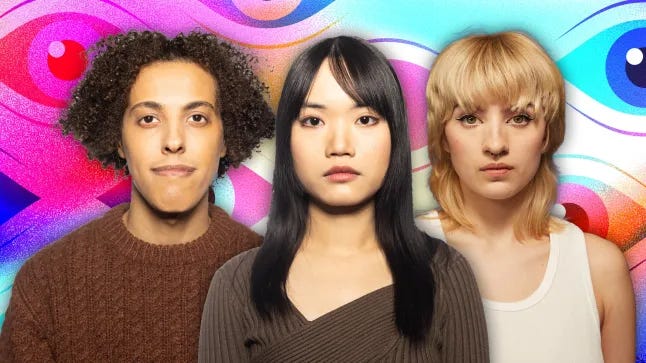
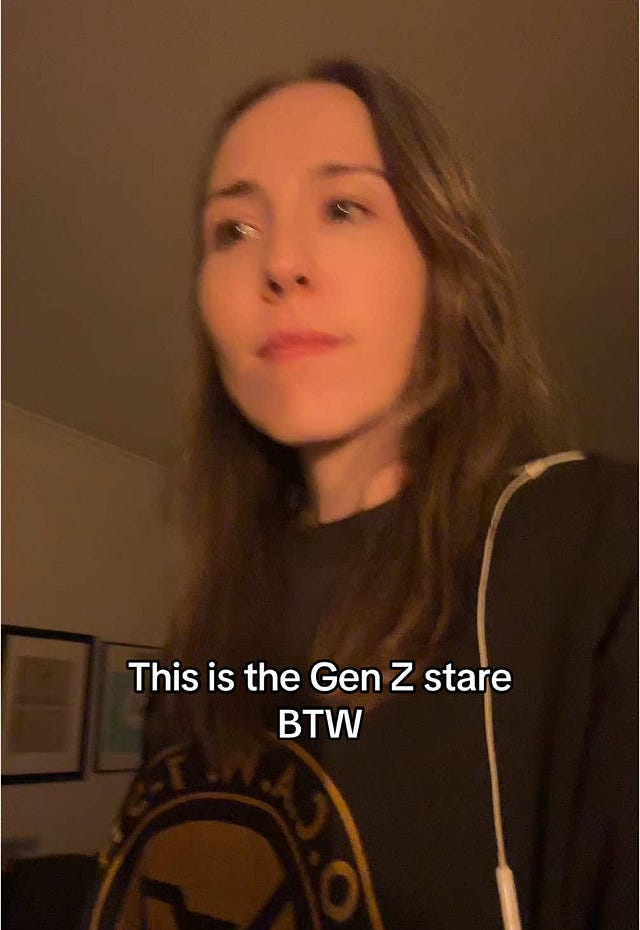

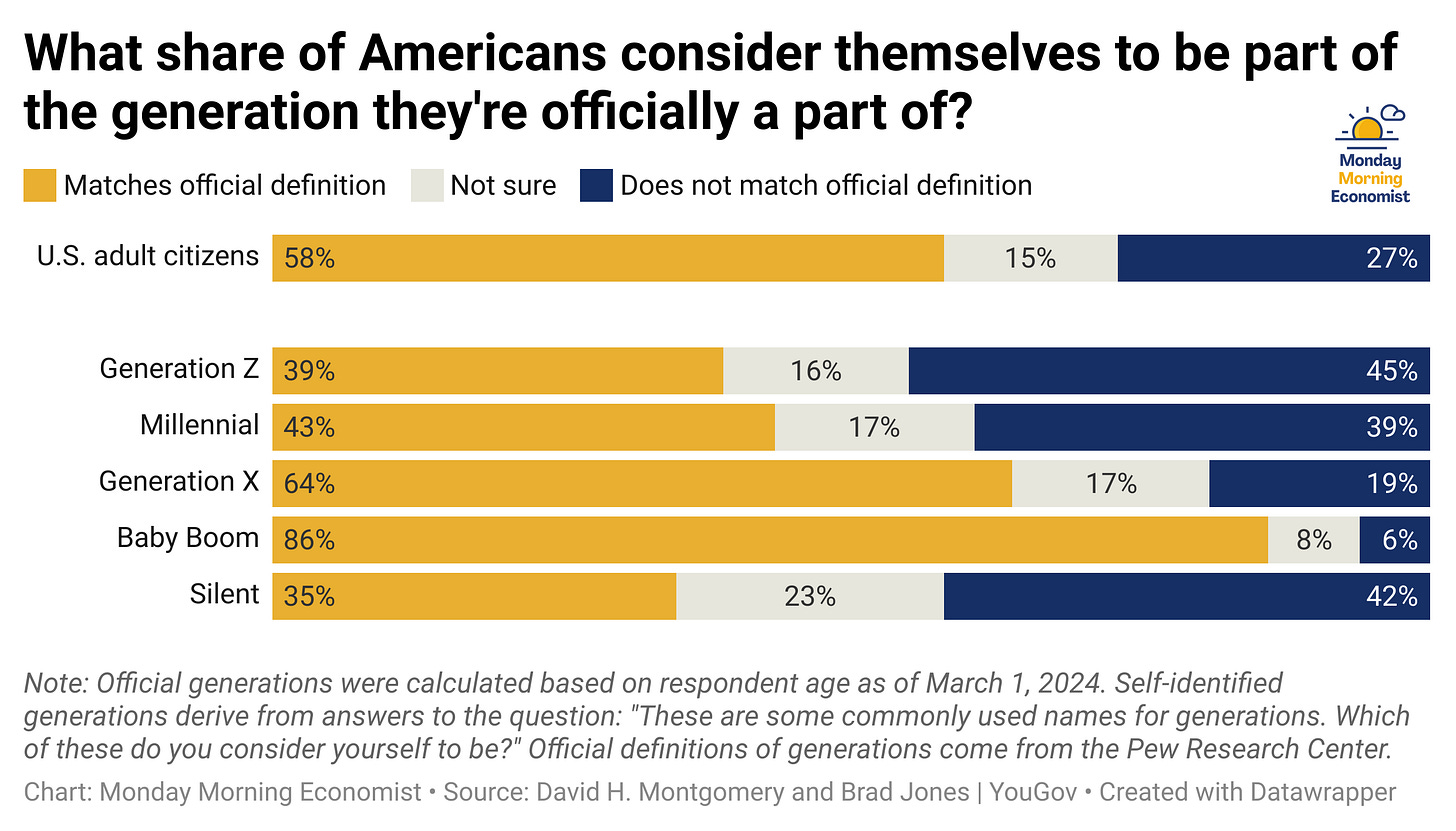
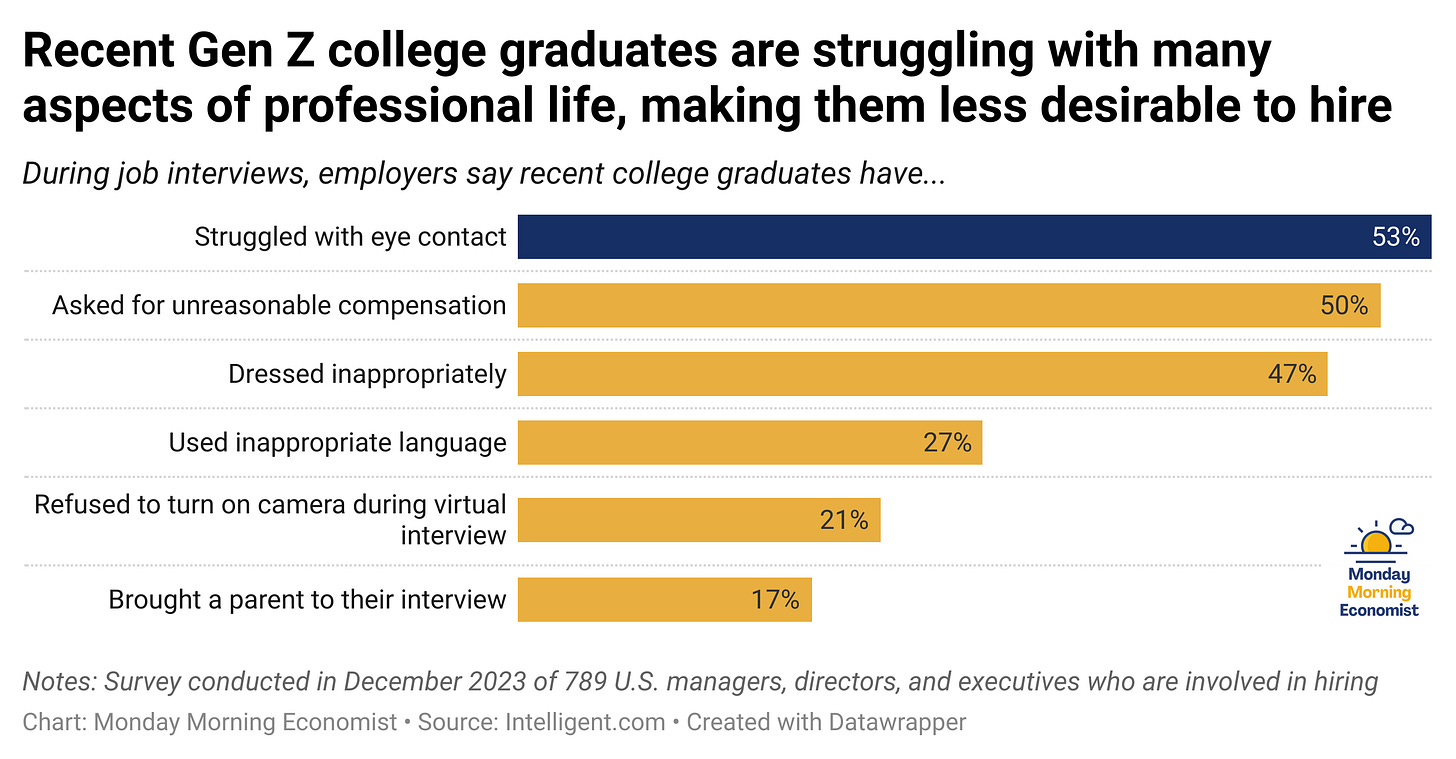
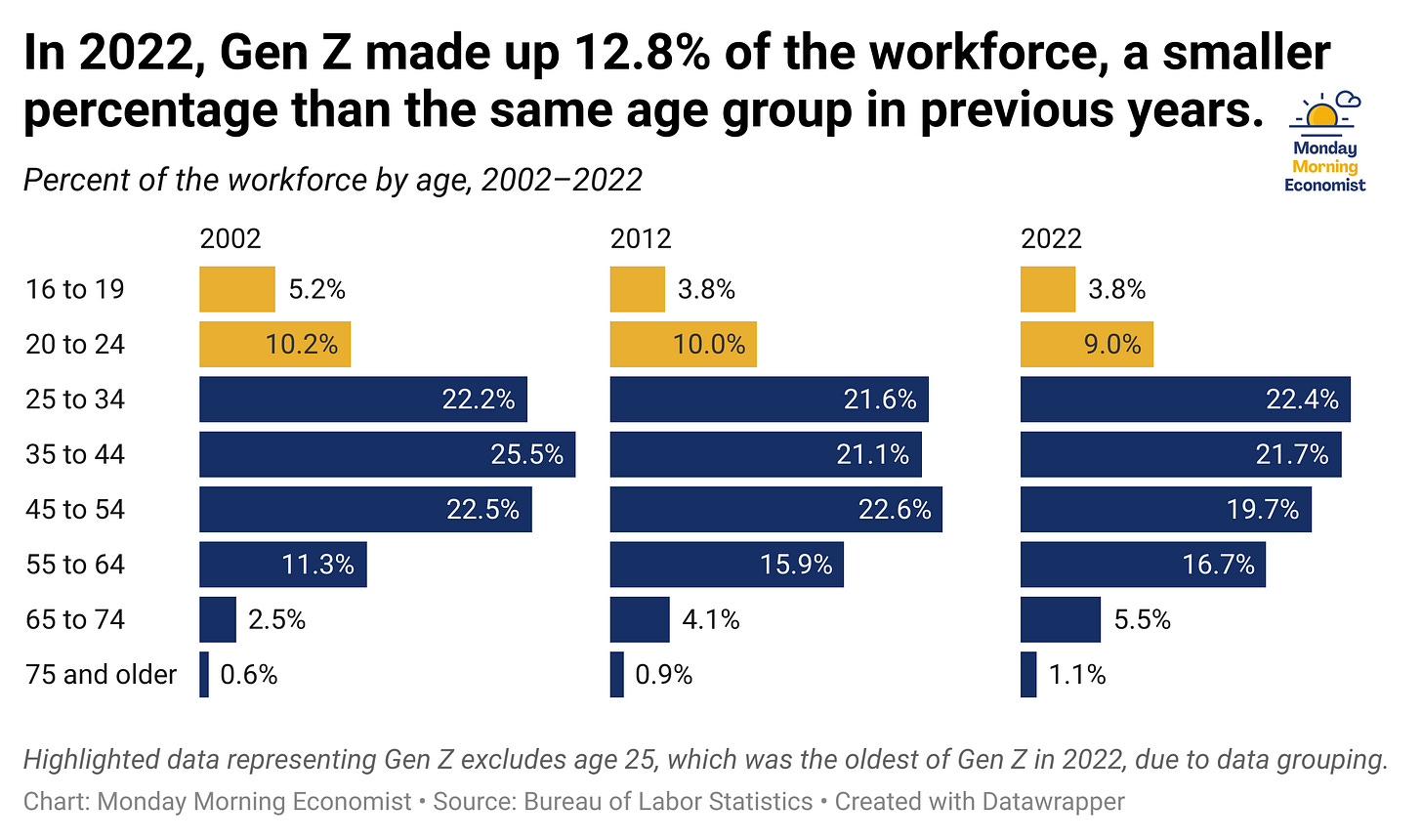
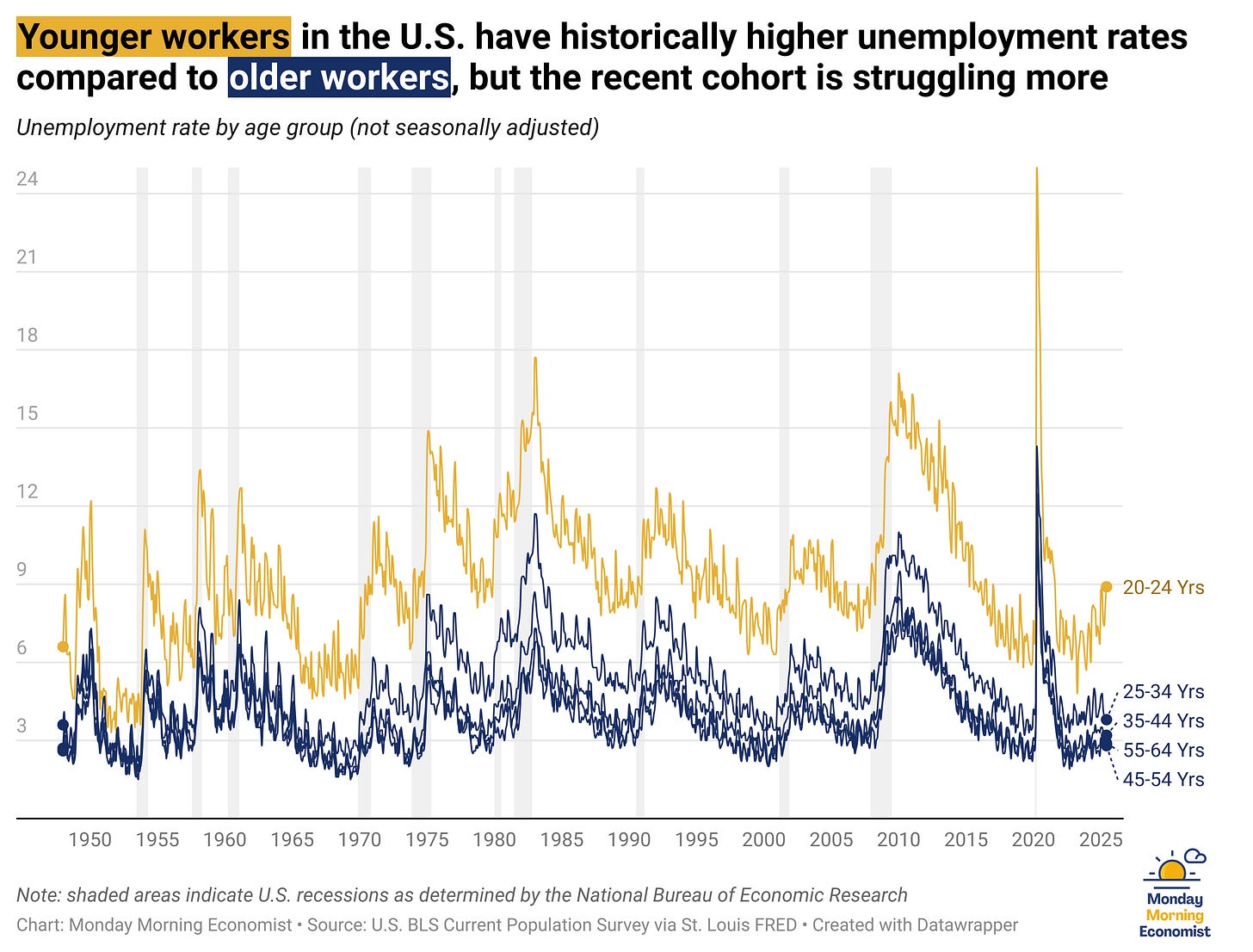
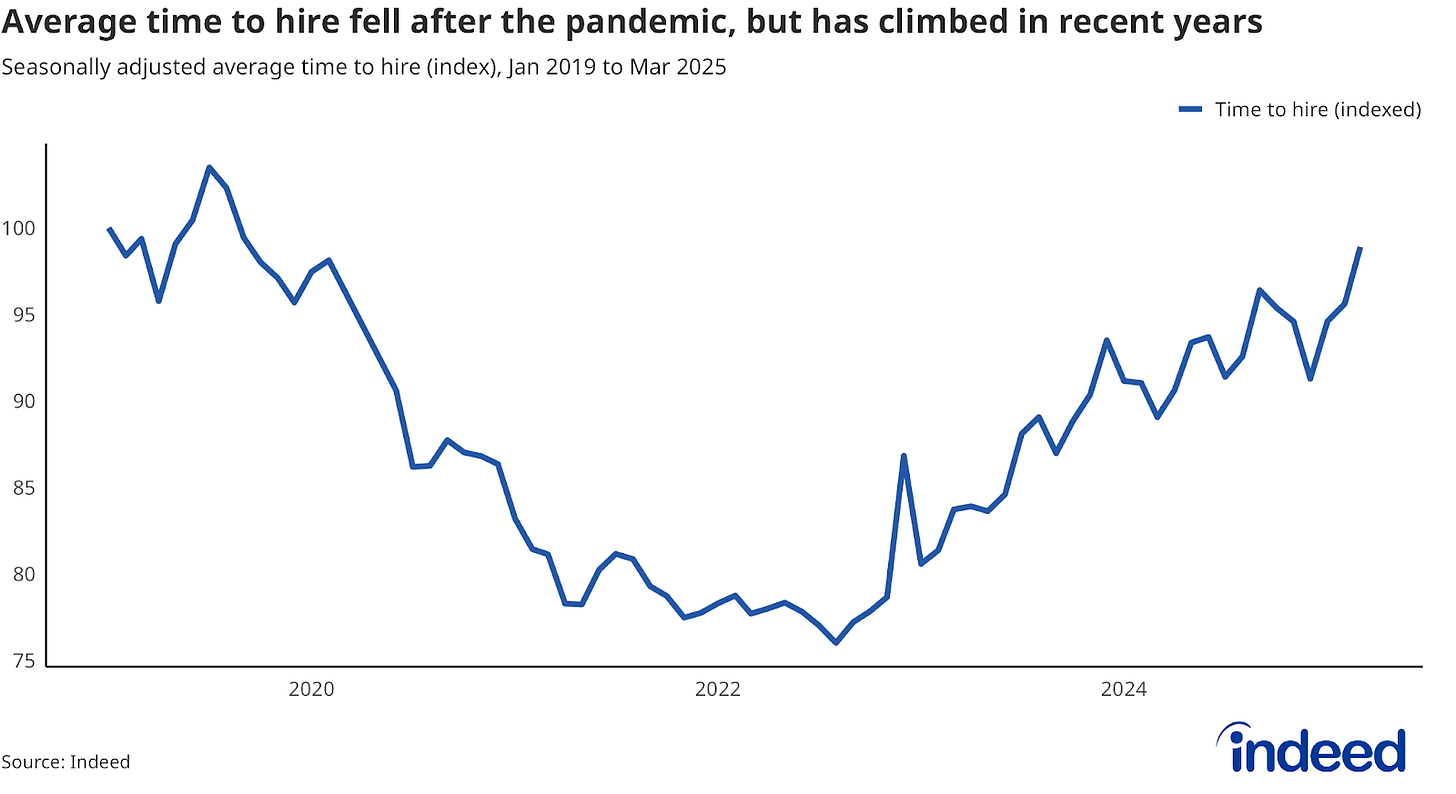
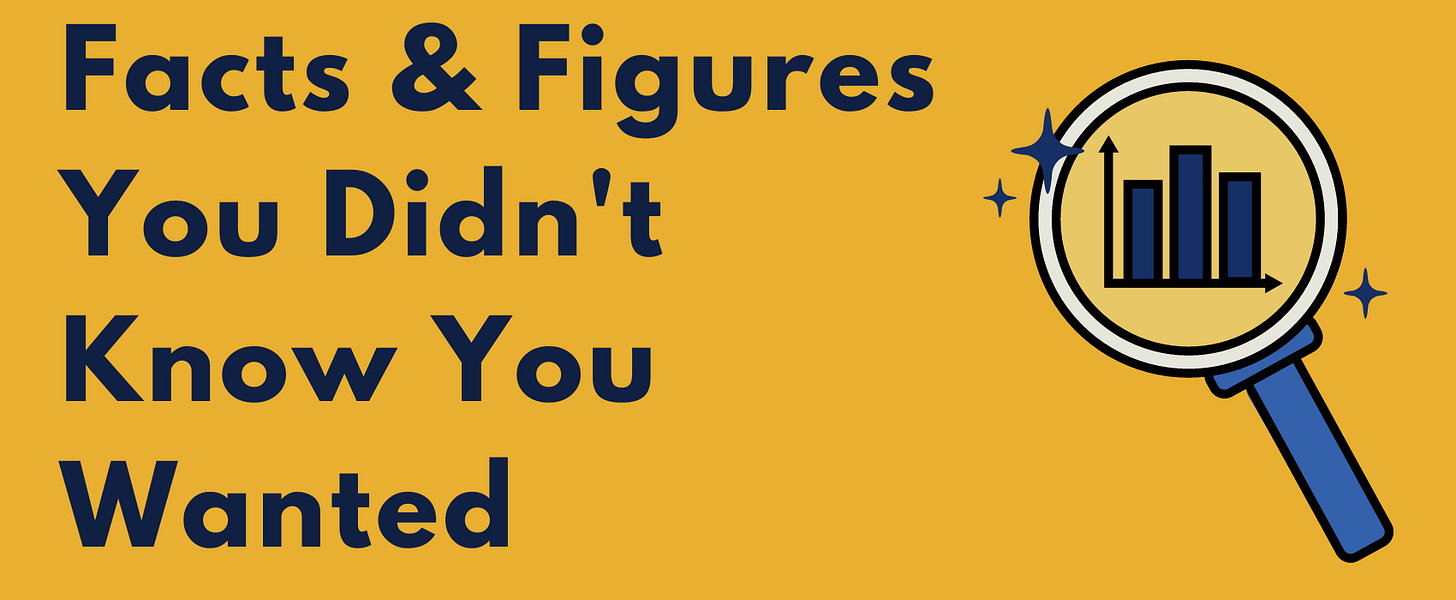
As an oral communication teacher, this article is gold Jerry! I try to emphasize some of the things in this article to my students. Great stuff.
This is very insightful. I have gen z conworkers and have never seen the stare. I would also like to point out on things like eye contact that gen z has higher rates of austim and adhd. Which for many of they makes maintaining eye contact harder. I always lead with empathy when i meet younger generations. That is what older generations did with me well at least most people. I think quest of finding every little thing wrong with genz and not offering help and assistance is fool hardy. I think it is too easily forgotten by all generations that we are in this together.